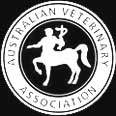Desexing (Cat)

Spey (CATS)
Recommend around 6 months
Benefits
- Stops unwanted kittens
- Prevents straying
Procedure
- fasted overnight – ie no food from 8pm night before, normal access to water
- admitted is between 8am – 8:30am for pre-operative examination and pre-medication
- procedure performed under general anaesthetic with vet nurse in attendance throughout the operation
- Pain relief injection will be administered at the time of procedure and then some pain relief suspension to go home with
- ready to go home around 3:00-5:30pm
- after care notes provided, imperative to keep animal quiet for 2 weeks after the operation. Monitor excessive swelling/discharge
- NB cats often get a small amount of swelling at surgery site as a reaction to suture material
- A tattoo will be in the left ear so council knows the animal is sterilised
Treatment Options for Mismatings
- spey – note surcharge does apply
- medical treatment – side effects
Castration – Dogs
Recommend around 6 months or older depending on undesired behaviour
Benefits
- Stops male dogs marking their territory
- aggression and social behaviour
- secondary sexual characteristics ie <humping
- cheaper to register the dog with the council
Health benefits
- reduces the incidence of prostate problems in older males
Procedure
- no food to be given 8pm night before, normal access to water
- admitted is between 8am – 8:30am for pre-operative examination and pre-medication
- procedure performed under general anaesthetic with vet nurse in attendance throughout the operation
- a pain relief injection is given at the time of the procedure and pain relief tablets to go home with
- intravenous fluid therapy administered during the procedure
- the patient will be ready to go home between 3:00-5:30pm
- aftercare notes will be provided at the time of discharge ie. need to keep quiet for the first few days and monitor wound for excessive swelling/ discharge
IF only 1 testicle is descended (Cryptorchid)
- strongly recommend castration!
- High incidence of cancer in the retained testicle
- Is a hereditary trait, and we recommended you do not breed from the dog
- This procedure is more expensive as the testicle may be inguinal or abdominal and may require a midline incision to look for missing testicle.
Common questions about desexing
Will desexing affect my pet’s personality?
Your pet will retain their pre-operation personality, possibly with the added bonus of being calmer and less aggressive.
Should my female have one litter first?
No – it is actually better for her not to have any litters before being spayed.Her risk of developing breast cancer increases if she is allowed to go through her first heat and puts her at a higher risk of developing a pyometra (pus (infection) filled uterus)
Will it cause my pet to become fat?
Your pet’s metabolism may be slowed due to hormonal changes after desexing, however, this is easily managed with adjusting feeding and ensuring adequate exercise. There is no reason a desexed pet cannot be maintained at a normal weight.
Is desexing painful?
As with all surgery, there is some tenderness immediately after the procedure, but most pets will recover very quickly. We administer pain relief prior to surgery and after surgery too. Your pet will be discharged with a short course of pain relief medication to take at home for the first few days after the surgery. In many cases, your pet will likely need some encouragement to take it easy!
Will my dog lose its “guard dog” instinct?
No, your dog will be just as protective of their territory as before the surgery.
What to do before and after surgery
Before surgery:
Make a booking for your pets operation.
- If your pet is a dog, wash them the day before surgery as they are unable to be washed after until the stitches are removed.
- Do not give your pet food after 10pm the night before the operation and do not give them any water after 8am on the day of surgery.
- A blood test may be performed prior to surgery to check vital organ function.
- The vet will perform a thorough physical examination before administering an anaesthetic.
- Some pets will require intravenous fluid support during surgery. This will be discussed with you prior to the procedure.
- To ensure your pet is as comfortable as possible, all pets receive pain relief prior to desexing and to take home for a few days after the procedure.
After Surgery:
Keep your pet restrained and quiet as the effects of anaesthetic can take some time to wear off completely.
- Keeping them quiet is also essential to allow the wound to heal.
- Food and water should be limited to small portions only on the night after surgery.
- Follow any dietary instructions that the vet has provided.
- Ensure all post-surgical medications (if any) are administered as per the label instructions.
- Ensure your pet’s rest area is clean to avoid infection.
- Check the incision at least twice daily for any signs of infection or disruption (eg. bleeding, swelling, redness or discharge). Contact the vet immediately if these symptoms appear. Do not wait to see if they will spontaneously resolve.
- Prevent your pet from licking or chewing the wound. Special cone-shaped collars assist with this problem. A single chew can remove the careful stitching with disastrous effects.
- Ensure you return to us on time for routine post-operative check-ups and removal of stitches.
If you have any concerns before or after your pet has been desexed, please call us immediately to discuss.
Contact us
See you and your furry friend soon!





